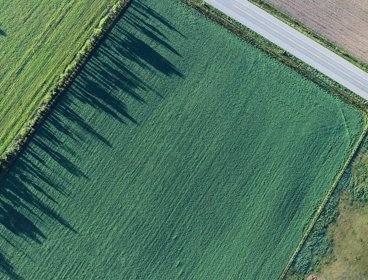This page contains a collection of equality, diversity and inclusion (EDI) resources with relevance to pedagogy in HE geography. These resources were collated as part of the Enabling equitable cultures of knowledge and practice in physical geography and environmental sciences project, funded by the Natural Environment Research Council (NERC).
This page is dynamic; if you know of other relevant resources or wish to submit your own case study, we’d like to hear from you at rhed@rgs.org
The Society does not accept responsibility for the content of the external sites. Inclusion on this list does not equate to an endorsement of any content or organisation. Please contact the external site for questions regarding individual resources.
Selected readings
- Alderman, D., Narro Perez, R., Eaves, L.E., Klein, P. and Muñoz, S. (2019). Reflections on operationalizing an anti-racism pedagogy: teaching as regional storytelling. Journal of Geography in Higher Education, September, pp. 1-15. Access this resource.
- Barker, A. J., and Pickerill, J. (2023). Geographies of collective responsibility: decolonising universities through place-based praxis. Journal of Geography in Higher Education, pp. 1-22. Access this resource.
- Carter, J., and Hollinsworth, D. (2017). Teaching Indigenous geography in a neo-colonial world. Journal of Geography in Higher Education, 41(2), pp. 182-197. Access this resource.
- Chatterton, P. (2008). Using geography to teach freedom and defiance: Lessons in social change from ‘autonomous geographies’. Journal of Geography in Higher Education, 32(3), pp. 419-440. Access this resource.
- Daigle, M., and Sundberg, J. (2017). From where we stand: Unsettling geographical knowledges in the classroom. Transactions of the Institute of British Geographers, 42(3), pp. 338-341. Access this resource.
- Dwyer, O. J. (1999). Teaching about race and racism in geography: Classroom and curriculum perspectives. Journal of Geography, 98, pp. 176-179. Access this resource.
- Eichhorn, M. P., Baker, K., and Griffiths, M. (2020) Steps towards decolonising biogeography. Frontiers of Biogeography, 12(1). Access this resource.
- Esson, J. and Last, A. (2020). Anti‐racist learning and teaching in British geography. Area, 52, pp. 668-677. Access this resource.
- Greene, S., Ashley, K., Dunne, E., Edgar, K., Giles, S., and Hanson, E. (2020). Toilet stops in the field: An educational primer and recommended best practices for field-based teaching. EarthArXiv, preprint. Access this resource.
- Hammersley, H., Bilous, R., James, S., Trau, A. and Suchet-Pearson, S. (2014). Challenging ideals of reciprocity in undergraduate teaching: The unexpected benefits of unpredictable cross-cultural fieldwork. Journal of Geography in Higher Education, 38(2), pp. 208-218. Access this resource.
- Heyman, R. (2000). Research, pedagogy, and instrumental geography. Antipode, 32(3), pp. 292-307. Access this resource.
- Hinton, M., and Ono‐George, M. (2020). Teaching a history of “race” and anti‐racist action in an academic classroom. Area, 52, pp. 716-721. Access this resource.
- Jackson, P. (1989). Challenging racism through geography teaching. Journal of Geography in Higher Education, 13, pp. 5-14. Access this resource.
- Kinkaid, E., and Fritzsche, L. (2022). The stories we tell: Challenging exclusionary histories of geography in US graduate curriculum. Annals of the American Association of Geographers, 112(8), 2469-2485. Access this resource.
- Laing, A.F. (2021). Decolonising pedagogies in undergraduate geography: student perspectives on a Decolonial Movements module. Journal of Geography in Higher Education, 45:1, 1-19, DOI: 10.1080/03098265.2020.1815180. Access this resource.
- Nursey-Bray, M. (2019). Uncoupling binaries, unsettling narratives and enriching pedagogical practice: Lessons from a trial to indigenize geography curricula at the University of Adelaide, Australia. Journal of Geography in Higher Education, 43(3), pp. 323-342. Access this resource.
- Rose, G. (1990). Resources for teaching gender and geography. Journal of Geography in Higher Education, 14, 2, pp. 157-162. Access this resource.
- Radcliffe, S. A. (2022). Decolonizing Geography: An Introduction. Bristol: Polity Press. Access this resource.
- Reimer, C., Ruder, S. L., Koppes, M., and Sundberg, J. (2023). A Pedagogy of Unbecoming for Geoscience Otherwise. Annals of the American Association of Geographers, 113(7), pp. 1711-1727. Access this resource.
- Thaman, K. H. (2009). Towards Cultural Democracy in Teaching and Learning with specific References to Pacific Island Nations (PINs). International Journal for the Scholarship of Teaching and Learning, 3(2), pp. 1-9. Access this resource.
- Wellens, J., Berardi, A., Chalkley, B., Chambers, B., Healey, R., Monk, J. and Vender, J. (2006). Teaching geography for social transformation. Journal of Geography in Higher Education, 30(1), pp. 117-131. Access this resource.
Other resources
New to teaching geography
A practical guide for higher education teaching assistants, teaching fellows and demonstrators.
What works for teaching and learning in HE GEES?
A teaching-focused blog for academics in geography, earth and environmental sciences
Postgraduate Pedagogies
A journal focusing on the contribution of GTAs to higher education.
Teaching and Scholarship Forum (TeaS)
A forum for meeting, sharing and supporting teaching and scholarship in higher education.




